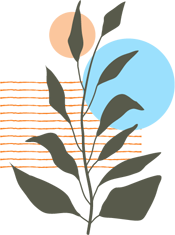Finding treatment is essential to recovery, as rehabs and treatment centers are able to provide you with tools, like healthy coping mechanisms, to help you remain clean and sober.
Although addiction and substance abuse disorders are widespread, impacting roughly 23 million Americans annually, only 10% of people who need help to recover ultimately receive treatment. Addiction is a powerful and chronic mental health disease that is progressive and lethal, meaning that the condition will continue to get worse until you receive help. While addiction begins with your first use, the disease can accelerate quickly and lead to physical and psychological dependence.
How Addiction Works
Anyone, regardless of age, race, or gender, can ultimately develop a substance abuse disorder. All psychoactive substances, including legal, prescription and illicit ones, carry the potential of addiction. Substances can cause physical and/or psychological dependency, with physical addictions resulting in painful withdrawal symptoms.
Common signs of addiction can include:
- Experiencing guilt, shame, or remorse about your substance use
- Increasing your use in order to feel the same pleasurable effects
- Concealing your substance use from others
- Friends or family members confronting you about your substance use
- Prioritizing your substance use over employment, financial, and familial obligations
Addiction impairs your decision-making ability and also causes changes to your brain chemistry. Your brain’s pleasure and reward center associates your substance of choice with pleasure, which results in your brain positively reinforcing your drug use.
What are Coping Mechanisms?
When you develop an addiction, your brain associates everything that reminds you of your substance of choice with pleasure. Triggers, which are people, places, or things that remind you of your substance of choice, cause cravings, even after you stop using. Cravings are a central part of both addiction and recovery.
During treatment, developing healthy coping mechanisms is essential to learning how to combat cravings, triggers, and other risks to your sobriety. When you suffer from addiction, using drugs and alcohol are your main coping mechanisms. That means that recovery requires learning how to manage your symptoms with positive and healthy coping mechanisms.
Healthy coping mechanisms can include:
- Working out and exercising
- Listening to music
- Drawing
- Talking to a friend, sponsor, or therapist
- Hiking and outdoor recreation
Coping mechanisms are necessary because sobriety is challenging and it’s impossible to avoid things like stress and major life changes. Developing a strong network of friends and family members who support your recovery and sobriety is important, especially because recovery means avoiding people who continue to use and abuse substances.
Treatment centers help you find healthy coping mechanisms by offering activities like art therapy, meditation, and journaling. Finding ways to express negative emotions in a healthy and productive way can also limit your risk of experiencing a relapse.
Reaching Out for Help Today
When you are struggling with addiction or a substance abuse problem, you can feel trapped, overwhelmed, and defeated. No matter what stage of addiction you’re in, it’s never too late, or too early, to reach out for help and find healthy coping mechanisms. Our treatment provides you with the support and guidance that you need to beat addiction. To find out more about, contact us at 844.334.4727.


